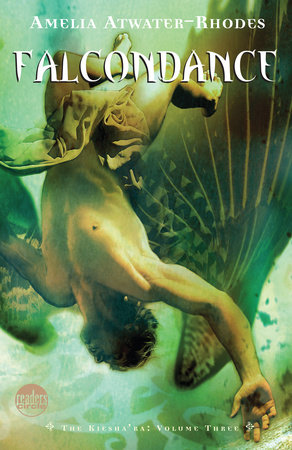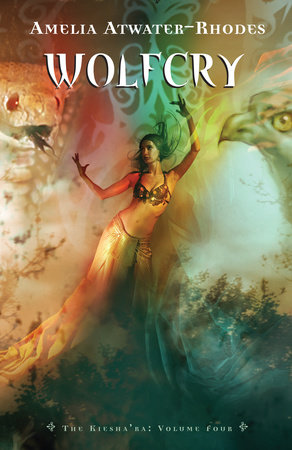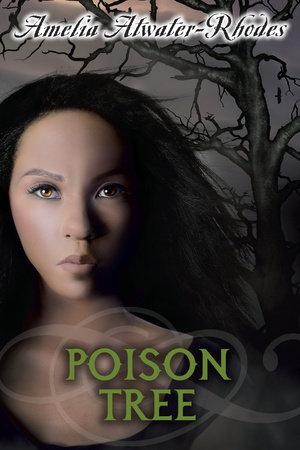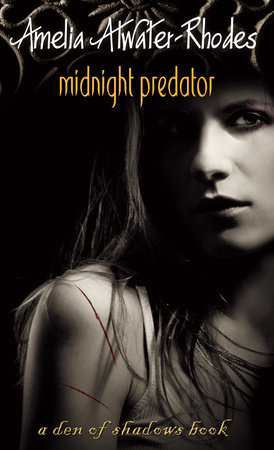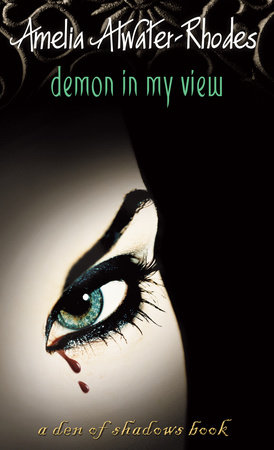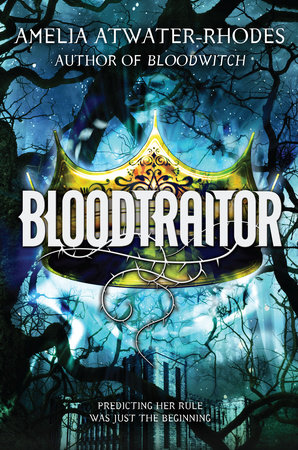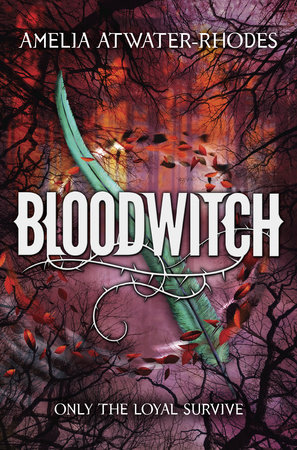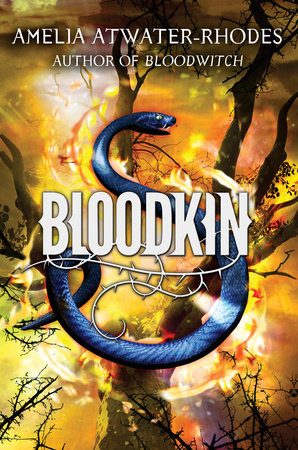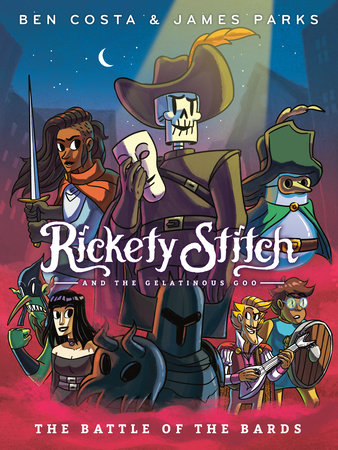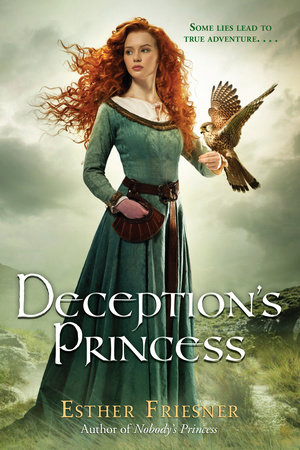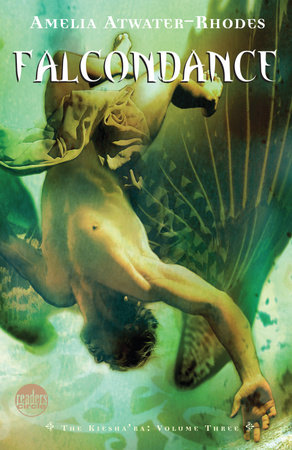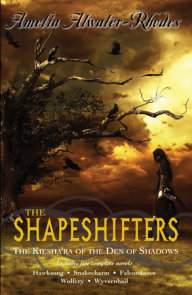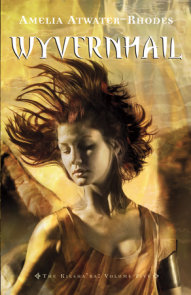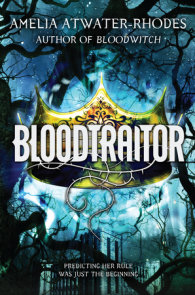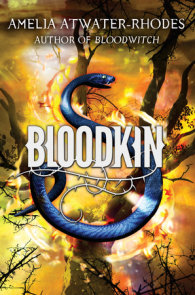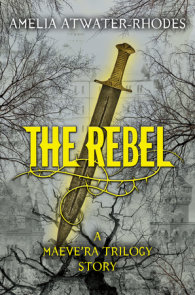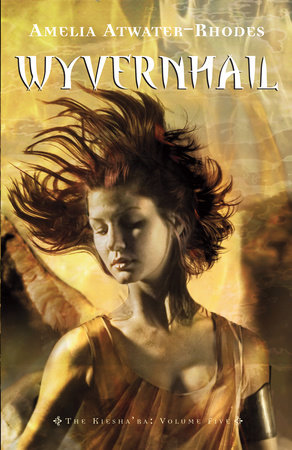Author Q&A
A Conversation with Amelia Atwater-Rhodes
Q: When did you start writing?
A: I have always loved to create stories. My earliest tales were told to family members before I knew how to write. I started my first “novel” in first grade, handwriting it in a pink diary with hearts or something on the cover. Some well-meaning relative gave the diary to me, probably without ever guessing that it would become the home of a science fiction novel about the intergalactic origins of the cats that were worshipped in ancient Egypt.
My imagination has always been my driving characteristic. After the pink diary story, in second grade I tried to cowrite a novel called The Hope to Get Out with my best friend. Shortly after, my father allowed me the use of his computer and I began a story about people who lived on rafts . . . which I later lost because I password-protected it and while I remembered the password was dragon, my spelling was so bad I couldn’t figure out how I had spelled it. Years later, in the summer after fifth grade, I started Red Moon, a story mostly about my friends (with a vampire thrown in for fun) that became my first finished novel, my introduction to Nyeusigrube, and the springboard for all the writing I have done since.
Q: What made you want to be a writer?
A: I get this question all the time, and I point out that I have always been a writer in that I have always loved to write. The only decision I had the chance to make was whether or not I would submit a manuscript for publication. What made me want to be a published writer was a friend of mine who hated reading.
She usually took months to finish (or put down and not finish) even a short book. One day she asked to read one of mine, because she felt left out that I had shared it with all my other friends and not her. I gave her a manuscript, never expecting that she would read it–and she gave it back to me the next day, and asked me where the next one was.
That was when I decided that maybe my work was good enough to try publishing. I write because I love to write; I tell the stories for myself, because I want to know how they go. I publish for the people who, like that friend of mine, wrote to me later on to say “Your works inspired me.”
Q: How has publishing at such an early age changed your life?
A: Again, I am asked this question frequently, but it always seems a little strange to me. I signed my first contract when I was in eighth grade. How do the lives of most people change between eighth grade and the middle of college? I’m not sure.
If I had never published a novel, would I still be interested in my childhood dream of becoming a teacher? Or maybe I would have gone with my other dream to become a veterinarian. Who knows?
Writing has had a huge impact on my life, but so much has changed in the last several years that it is impossible to pinpoint how much of it was due to publishing, and how much was due to simply growing up. . . .
Q: Where do you get the inspiration for your characters and stories?
A: My inspiration comes from everywhere, everything, and everyone. I am the type of person who cannot help eavesdropping on conversations in public locations. When I see someone interesting on the subway, habit will make me describe him in my head as I might in a book, and move on from there to create a story about him. This is how I pass the time. Sometimes these little vignettes inspire moments or characters in a novel.
Sometimes all they inspire is the color of Risika’s eyes or Ravyn’s hair–both taken from people I saw but never even spoke to. Sometimes inspiration comes from within another story I am writing. A minor character will say or do something that makes me want to know more. Finally, much of my stories and characters simply appear, without any source I could ever recognize or possibly explain.
Q: Are any of your characters based on real people?
A: Beyond bits and pieces stolen from casual meetings with strangers, very few of my characters are inspired by real people. I could never take a real person and fit him into a book just for the sake of having him in there. However, occasionally someone I know will be perfect for a certain role. In that case, I may borrow a real person for inside the pages of a story.
Q: What is your writing process like?
A: Though I certainly spend time on my computer almost every day, I do not write every day, or on any fixed schedule. I write when I have an idea. In the meantime, I often complain that I’m not writing, check message boards, chat with people, update my Web site, or do research–all of which I immediately drop if an idea swirls to the surface of my thoughts. I have been known to go a week without writing anything substantive. I have also had days where I wake up early and write late into the night, churning out several chapters at a time before either inspiration runs dry or I drop from exhaustion.
I prefer to write at my computer, in my office, with music playing and my cockatiel, Thief, on my shoulder. However, if I have an idea, I will write on any surface I can take with me, with anything I can find. I try to keep a notebook with me at all times for just this reason, but I have been known to walk out of a movie theater with writing down my arm, or to jot notes down on scraps of newspaper, napkins, receipts, or once even a gum wrapper. I keep a digital recorder in my car for when I am driving, and have been known to dictate random strings of letters (my own shorthand) to passengers if I am driving someone else. In the absolute worst case, when I have nothing to write on or have my hands full (often driving), I’ll create odd memory devices to help me recall what the idea was.
Basically, I write anywhere at any time with any tools available to me, if I have an idea. With no idea, I will not write even in otherwise perfect conditions.
Q: Do you ever get writer’s block? How do you deal with it?
A: There are two kinds of writer’s block: lack of ideas and lack of inspiration.
The first kind occurs most often when I write myself into a corner. Sometimes this occurs during a single scene, most often an argument, where two characters simply take control and before I know it I have no idea how to bring them back to the plot. Since I do not outline before I write, sometimes I will realize abruptly that my character seems to be in a situation with no way out.
This kind of writer’s block I absolutely love. I complain about it all the time, to anyone who will listen, but frankly, I love pulling at the threads of a story to figure out what needs to happen next. Though it can be terribly frustrating to feel driven to write without knowing what to write, I still enjoy those moments.
When this occurs, I deal with it in a few different ways. Sometimes I skip the difficult scene entirely and work on something else, often something that occurs later, which may help me figure out what needed to occur in the middle. Sometimes I rewrite scenes from other points of view, hoping another character may notice or say something helpful to me. Quite often, I complain loudly to anyone who will listen, and give people scenarios and ask for suggestions (after which I usually pretty much ignore their suggestions). Rarely, I have to delete a few lines or even a few scenes–something I find very painful.
The other kind of writer’s block, lack of inspiration, is more devastating. What do you do when you simply can’t get your head into a story that you want to finish someday?
If I’m desperate and I absolutely need to finish the work, I change music (I always listen to music when I write), and I reread. I share the work with people I trust to get feedback However, most of the time if I’m not inspired, I put the book aside and work on one of the other forty-some stories I have in progress. If I don’t feel like working on any of them, either . . . I take a break. I let my wrists relax, and I read a book (or sometimes a whole series), and I go out to movies and Rollerblade and volunteer and play piano and study programming and build walls and garden and drive to Maine–and do the things that people do when they are not at work.
Q: Do you have any advice for young writers?
A: My advice for young writers rests on one simple command: Do it. This is my advice to anyone, young or old, who wants to get anything done: Do it. If you never start, you’ll never get anywhere.
I talk to people all the time who say, “I love to write, but I’m no good at it.” Writing is like any art and any skill. It takes practice. Lessons help. English classes (not just the creative writing ones), writing workshops, and reading groups are all valuable to a growing writer. But the primary element is practice.
